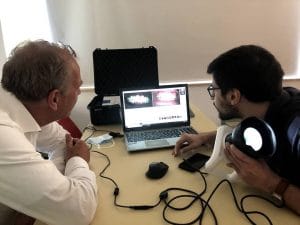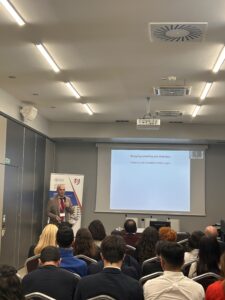Catania, 9 December 2022 – A plethora of poor-quality studies in the field of e-cigarette science is distorting scientific truth. This is due in part to defective editorial peer review process at major scientific Journals, which often gives voice to misinterpretation and misleading conclusions.
In their Commentary “A tale of flawed e-cigarette research undetected by defective peer review process” published in Internal and Emergency Medicine, top harm reduction researchers Riccardo Polosa, Founder of the CoEHAR, and Konstantinos Farsalinos, from University of West Attica, denounce the danger of an escalation in the promotion and dissemination of an anti-vaping narrative supported by evidence of the lowest quality.
The two scientists explain that more and more research does not take into account the relevance of the timing of the event, which is paramount to establish cause and effect relationships: for example, cross-sectional population-based studies by design that fail to include information on the age of initiation of e-cigarette and combustible cigarette use cannot be relied on for drawing conclusions regarding potentially causal associations with typical smoking-related diseases. What is worse, according to the authors, is that editorial offices of well-know scientific journals seem to downplay this critical detail..
The authors considered, as an example, a work by Parker et al (2020), who analyzed the Behavioral Risk factor Surveillance System (BRFSS) about the possible “risk of stroke” associated to e-cig use: they reported that switching from combustible cigarettes to e-cigs does not confer stroke benefits, and that e-cigarette users who were former or current cigarette smokers had significantly higher odds of stroke. The fact is that no information about the age of e-cig initiation or stroke occurrence was available within the report. Therefore, no causal inference can be applied between the two events. And this is not the only case.
“We are witnessing a proliferation of anti-vaping narrative driven by low quality science and ideology, and this is why the position of experts remains divisive and promotes the status quo in public health – stated Polosa. – Editors of important scientific Journals are to be held accountable for this state of affairs. It is a disgrace. Credibility of public health researchers is at stake!”.
As a symbol of good science, the authors cite a paper by Rodu and Plurphanswat (2022) who used the Population Assessment of Tobacco and Health SurveyPATH (wave 1), which has information on the age of diagnosis of specific disease and on tobacco or nicotine initiation age. As stated in this study, smoking-related diseases were only rarely diagnosed in people who vaped prior the age of diagnosis of these disorders, while these diseases were nearly always diagnosed following the age of initiation of smoking. Disease cases among smokers that occurred after first exposure represented 97% of all cases for COPD, 96% for emphysema, 98% for myocardial infarction and 93% for stroke. Moreover, most of these diseases were ultimately diagnosed in respondents who initiated smoking prior to 18 years of age.
“Many scientific papers published on the most authoritative scientific Journals, do not analyze and consider previous history of smoking of patients or any information of exposure initiation or diagnosis. Instead of trusting the scientific process, we are basing public health choices on word of mouth, cherry picking and exaggerations” stated Farsalinos.
Dissemination of inaccurate information on smoke-free alternatives by the editors and, subsequently, by the media contributes to public skepticism and uncertainty, particularly among smokers, who as a result are discouraged from adopting reduced-risk lifestyles. We need to have informed journalists and researchers who contribute to spreading correct data, understanding a simple axiom that association could not always be interpreted as a cause-effect relationship.




